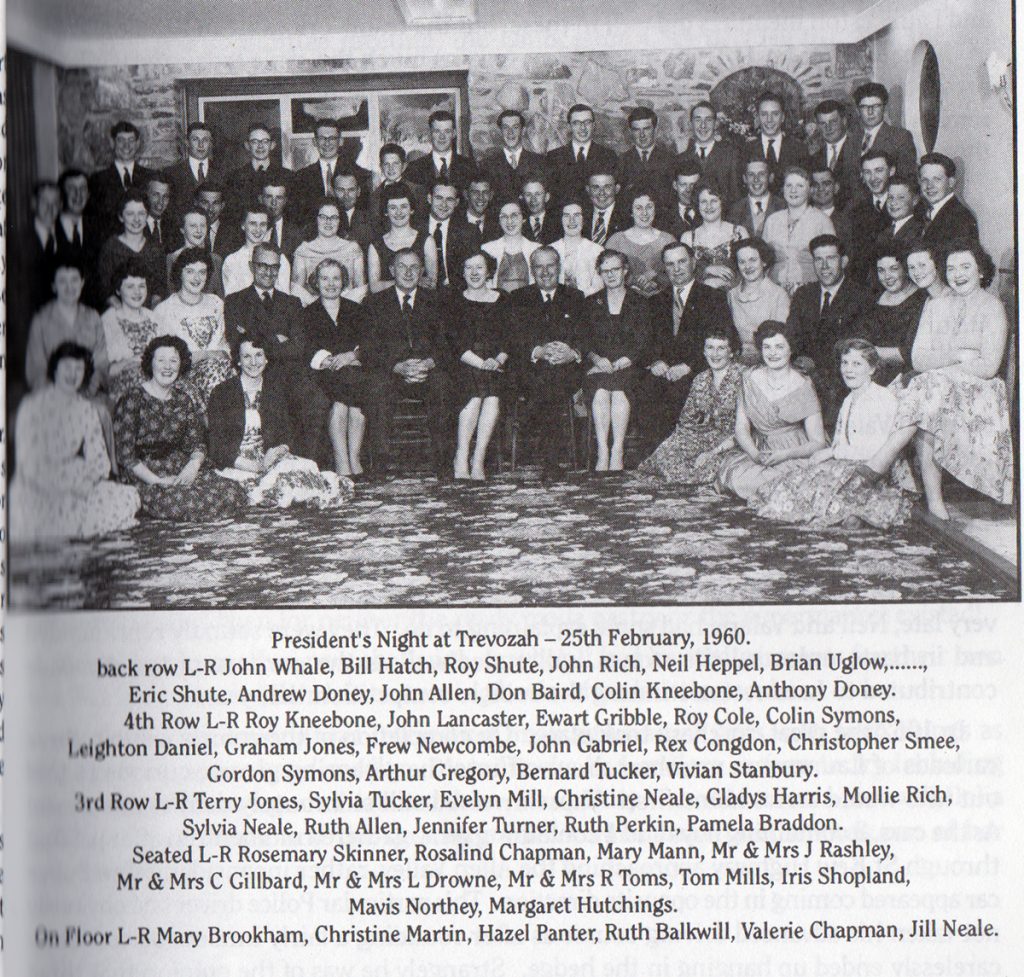.
Launceston Young Farmers Club traces its beginnings back to a meeting held at the Horwell Girls Grammar School, Dunheved Road (Hendra House below left) on October 2nd, 1947.
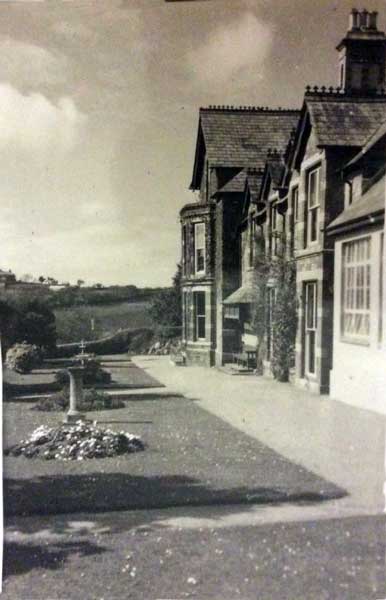
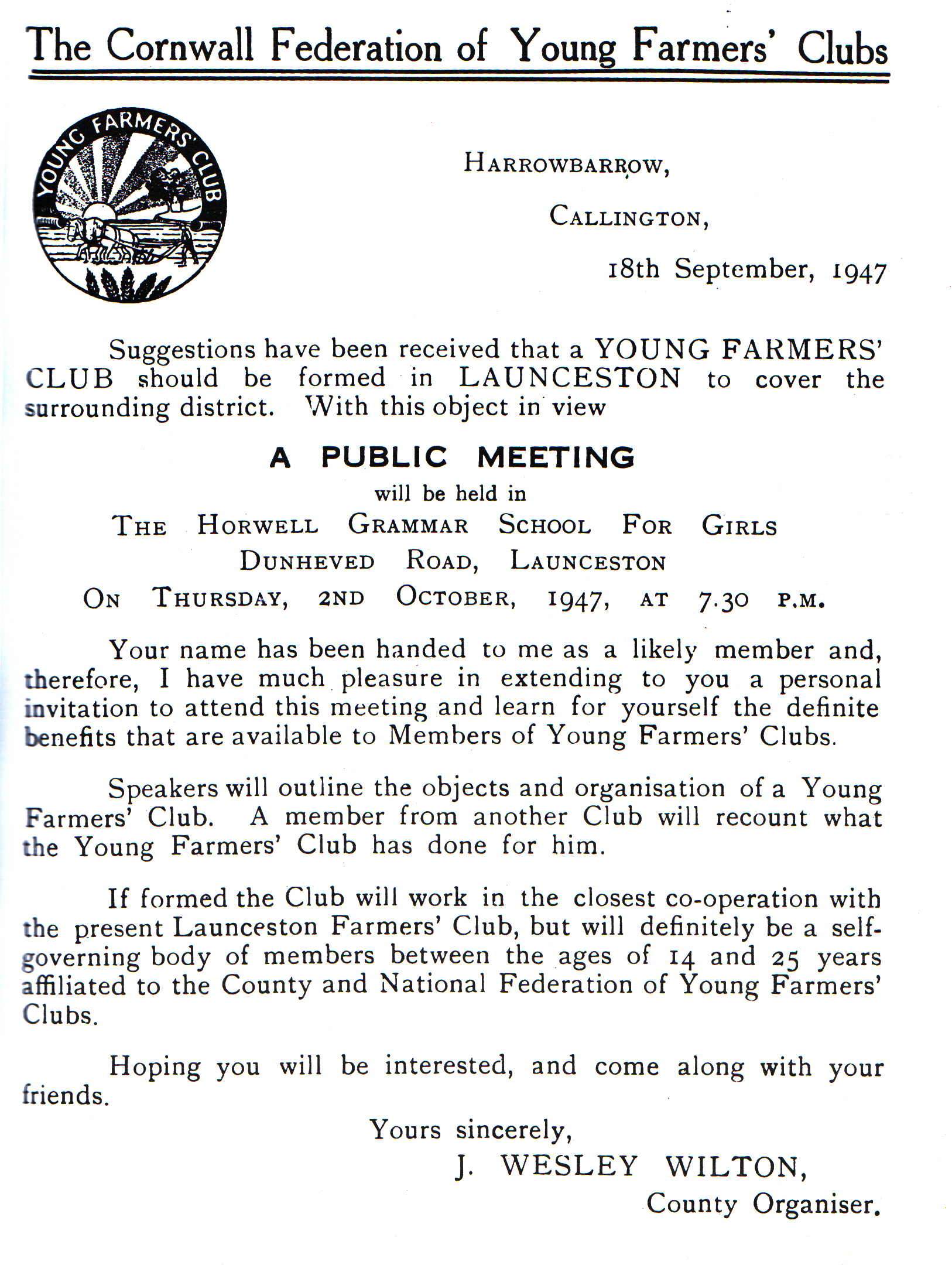
Such was the interest in forming the club that the meeting was packed out with every vantage point taken. People were sitting on the window sills, cupboards and many were left standing. The youngest was Vernon Daniel who was fourteen at the time and who would become a keen member for many years. Mr. Edwin Baker of Lawhitton chaired the meeting. Also present were Mr. J. Wesley Wilton ( Y.F.C County Organiser), Mr. Terry Haesler (Local Advisary Officer of the Ministry of Agriculture who had founded the Launceston Farmers Club two years earlier), Mr. George Bray (committee member of the Launceston Farmers Club), Mr. Herbert ‘Bert’ Robbins (who had been a club member of Lifton Y.F.C.), Mr. Henry Dawe (Secretary of Launceston N.F.U. branch) and Mr. Arthur Axford (member of Stratton Club).
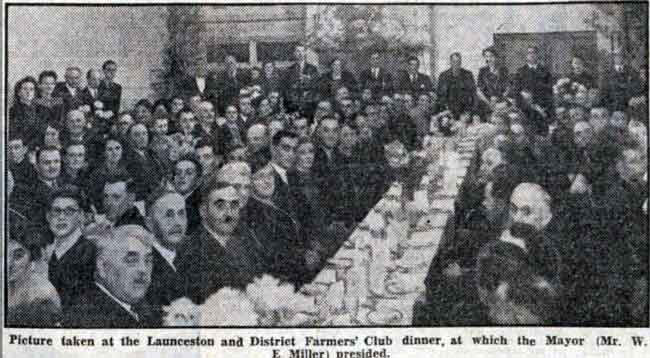
It was resolved to form ‘The Launceston and District Young Farmers Club’ with the nucleus of the disbanded Lifton Y.F.C (it had been previously agreed that Lifton would disband if a Launceston club were formed) forming the first committee. Two of the latter’s members, Roy Baker of Werrington and William Cole of Lawhitton becoming the new clubs chairman and vice-chairman respectively. The first secretary was Doreen Banbury of Rockwell, Yeolmbridge and Roy Chudleigh of St. Stephens becoming the first treasurer. Bert Robbins and George Bray were elected club leaders.
An annual subscription of 2/6d (12 1/2 pence) was agreed upon and meetings were held every fortnight at the Brotherhood Hall (then the Y.M.C.A. Hall).
Over the coming formative years the summers consisted of shows, the County Rally, farm walks and the many stock judging practices. The winter schedule took in quizzes, films, brains trusts, talks and social gatherings with inter-club competitions.
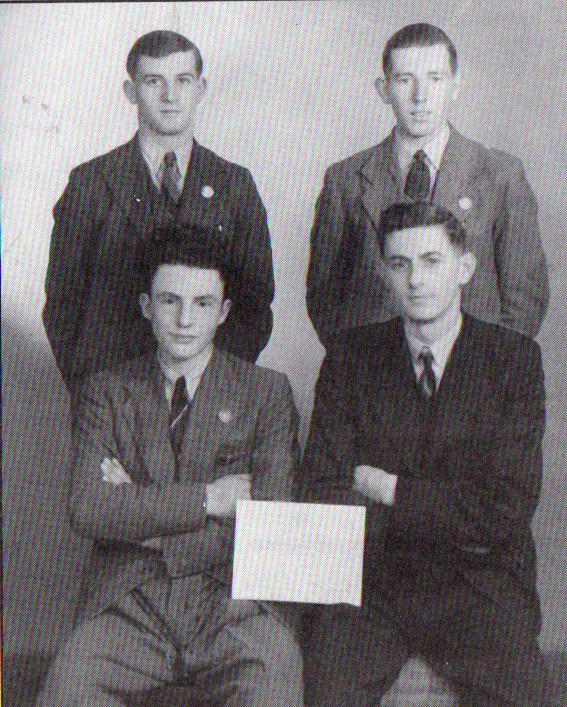
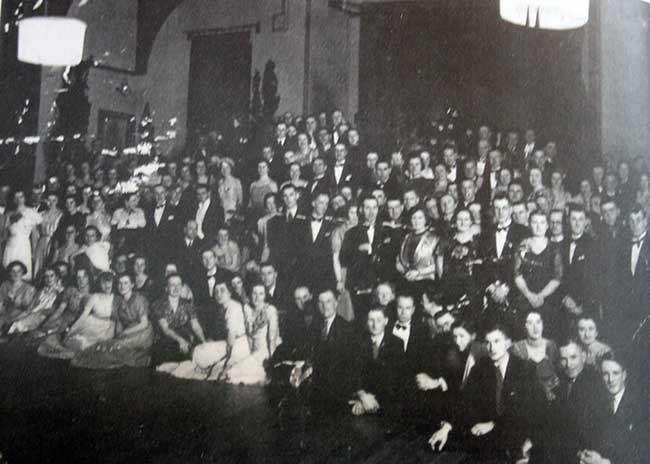
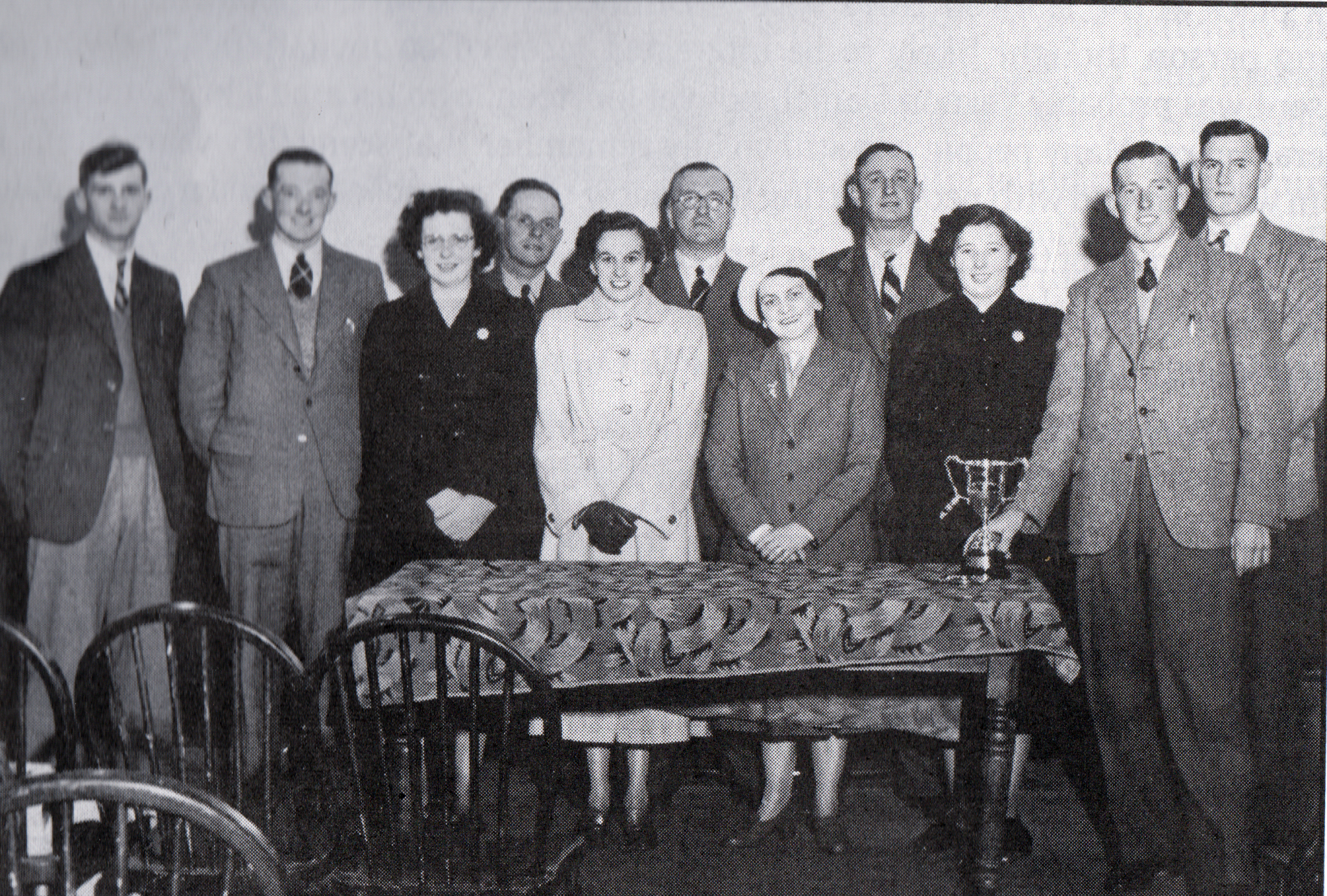
By the end of the clubs first year the membership had risen to 179 and the highlight of the first winters schedule was the New Years Eve party held in the Town Hall. The following February the club made its first entry into public speaking contests but the team led by Bill Cole lost even though Bill himself accrued the most individual points. The team made up of Bill, Gordan Smale and W.H. and Mary Hawke went on to win the county public speaking contest in 1949 eventually coming forth in the Intercounty finals.They repeated their success in 1951.
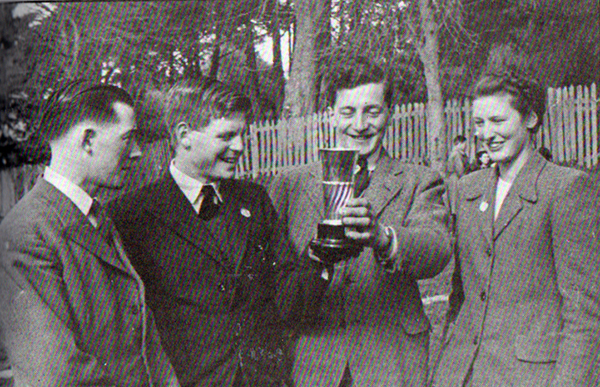
A team comprising of Derek Smale, Edwin Stanbury, Mary Frayne (Brookham), Gordan Smale and Monica Banbury (Brewer) again won the County contest in 1952. Sadly in 1950, the secretary Doreen Banbury suddenly passed away after an appendix operation. Pamela Baker took on the role in 1952 until 1954 when she took over as vice-chairman before becomming the first female Chairperson in 1955/56.
Writing in the clubs golden anniversary book in 1997 Pamela reminisced on her time in the Y.F.C.
“In the summer of 1951, my sister and I together with our parents moved to Boyton from our small farm in Berkshire. As we had been members of a junior Young Farmers Club in Reading, we lost no time tracking down the nearest club which turned out to be Launceston. So began an interesting, educational and enjoyable time as members of the club.
At first we found it difficult to understand the local dialect, so much so that on one occasion during a talent contest one of the members told a joke we were left completely in the dark as to the point of the joke but politely laughed at the finish! So you can imagine we were very amused when some members visited the Dairy Show, which was then held in London each Autumn, they met some Welsh Young Farmers and told the club on return ‘You can’t understand a word they say.’ However, we soon overcame this handicap and made friends and joined in all manner of activities. As well as regular meetings there were inter-club competitions such as quizzes, public speaking and on one memorable occasion a drama contest!
There were many practice evenings for these competitions and we travelled to many different locations in Cornwall to take part. During my years with the club, I was the first secretary for two years then vice-chairman followed by chairman. I believe I was the first girl to become chairman – quite a revolutionary idea in those far off days, no one had heard of feminism or equality of the sexes!
The highlight of the year was the County Rally which was hosted by a different club each year. During our time as members the county rally was held at Werrington Park and hosted by Launceston Club which was a great occasion for the club and involved a lot of planning and organisation in the build up to the great day. I was very much involved in the arrangements and preparations for entertaining the many clubs from all over Cornwall. There was a full programme of competitions and games which went on all day. For the evening entertainment, we roasted a whole bullock on a spit which was quite an innovative idea in those days. Both the Royal Cornwall Show and the Bath and West (below) were held at Launceston during our time with the club, this was in the day before these shows had permanent sites.
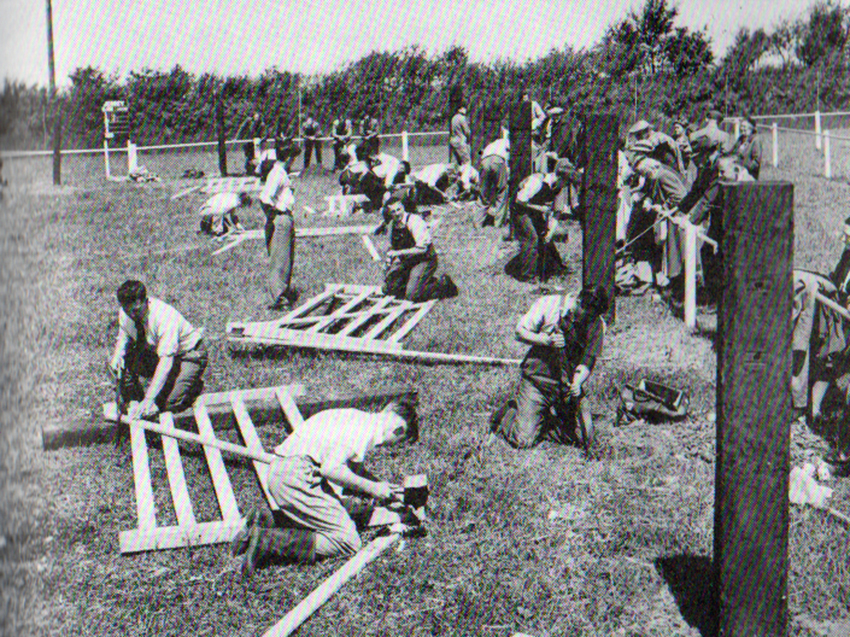
There were competitions in stock judging and tractor driving, among others for girls, cookery and crafts which were entered by many with varying degrees of success but with great enthusiasm.
In the winter time, as well as meeting there were inter club quizzes, public speaking and other competitions arranged at National level, so the winning team in each county went on to compete against other counties which we managed occasionally.
Then there was the AGM in London each year which two members from each club were elected to attend. I was elected to do this on one occasion. The usual way to travel such a distance in those days was by train – no motorways and the cars considerably slower! People certainly didn’t travel so far then and quite a few members had never been to London. I think the other big difference between those days and the clubs today was the complete absence of alcohol at all these events, even at the socials we held in St. Stephens Church hall and even though we often held meetings in the back room of a pub!
I remember my years with the club as very enjoyable and fulfilling with the friendly rivalry between clubs in all manner of competitions. The social occasions which brought us all into contact with the many other clubs in the County of Cornwall and beyond. It was always interesting to meet and talk to Young Farmers from other areas and exchange ideas and views, which, after all is what the Young Farmers Club movement is all about. I dare say the clubs are run on much the same lines today with the same aims and ideals even though the times and methods of farming have changed considerable in the intervening 40 odd years.”
During the first few formative years points judging including horses and hand milking competitions were held at Bert Robbins’s farm at Welltown just across from Polson. In 1953 drama competitions began with then then headmistress of St. Stephens School coaching, and in 1954 a cast of Peter Gubbin, Alan Banbury, Elizabeth Jasper, Clifton Wadland, Avril Jasper and Margaret Stanbury performed as part of a Y.F.C. Drama Festival at Launceston Town Hall, the play ‘The Dear Departed.’ Adjudication described the show as being “very smooth and polished.”
In 1954 Messrs Robbins and Bray ‘retired’ as club leaders and were ably replace by Roy Toms who was usually assisted by an ex member for a year or so before marriage or work claimed their free time. In 1956 County Fair was held at Werrington with the club being the hosts.
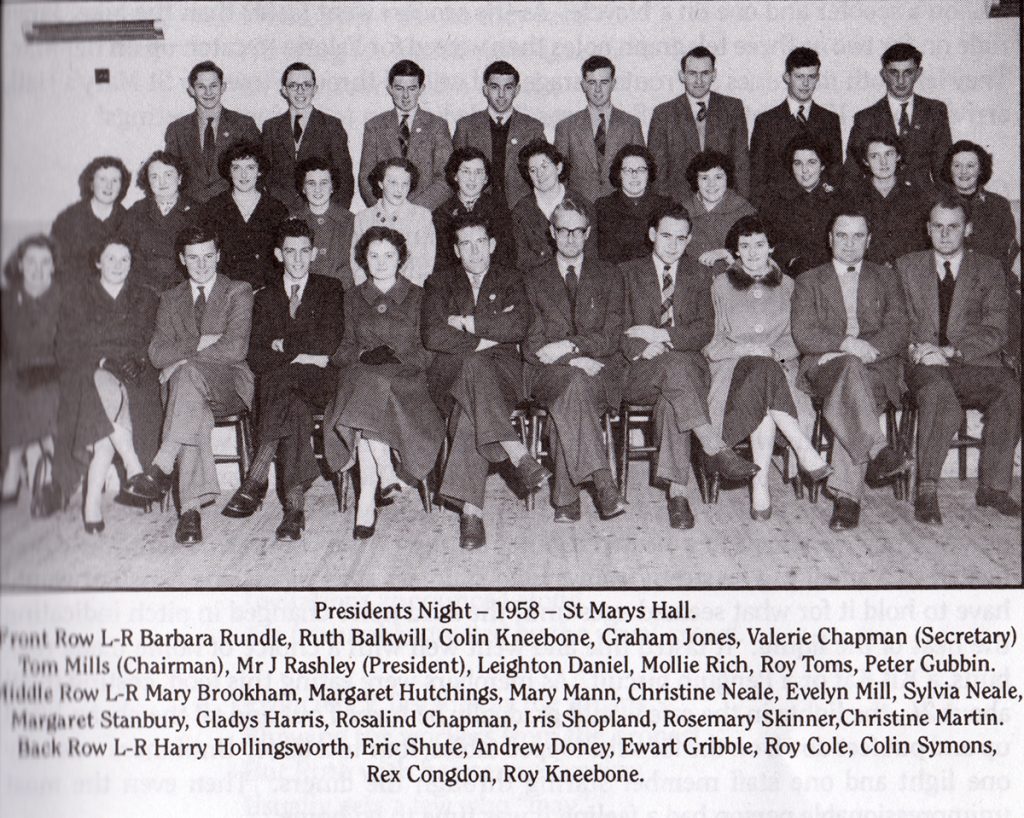
Bernard Tucker recalls that meetings held in St. Mary’s Hall never started on time but always finished with a cup of tea at around 9:45 p.m. This gave a sporting chance for those wishing to make Parker’s Fish and Chip shop in Westgate Street before closing. The club rarely met during the summer months apart for the preparation for the two big summer events – the Royal Cornwall Show and the County Rally. Gradually as the 60’s progressed and members began to experience withdrawal symptoms, a summer programme was developed. This was centred mostly around the various shows, trips and social events. Trips to such venues as the Beaulieu Motor Museum, Fry’s Chocolate Factory, Longleat and to BOCM at Avonmouth. It was during the 60’s that farm walks began to be organised to progressive farms.
Launceston Y.F.C.’s first visit was inspired by the then President Colin Gillbard. Through a business colleague in Lincolnshire, three young farmers from Sturton-by-Stow spent a week as guests of the club. They enjoyed the hospitality of many members, visited various farms and participated in the social events, the main one being the annual summer outing. That year was the Harris Bacon factory at Totnes, a visit to Dartington Hall farm in the afternoon and a film at Torquay in the evening. In the autumn of that year Jennifer (nee Turner) and Brian Uglow, Mollie (nee Rich) and Leighton Daniel returned the visit.
The County Rally was popular with all clubs seeking to healthily compete against one and other. A marquee held the static displays and practical events were done on the filed and intricate pieces of work were produced. In the afternoons fun sports were held. These were often hilariously funny but were also deadly serious and very competitive.
Visits: 147

